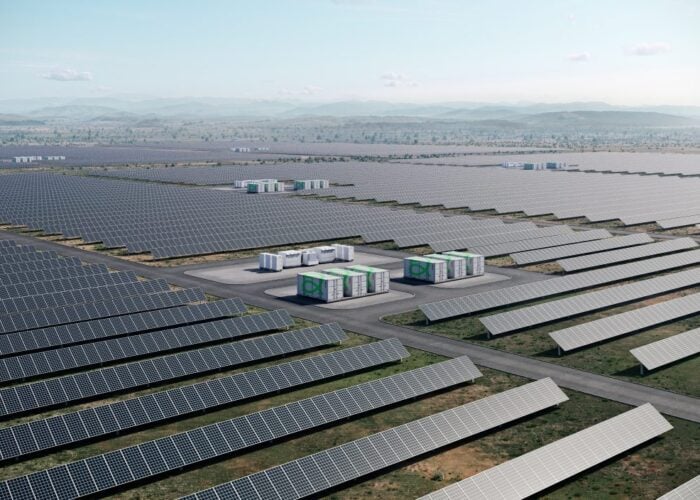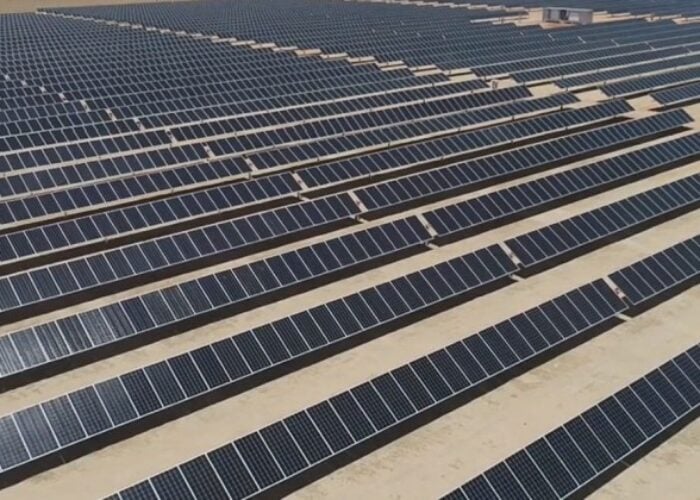The joint European PV GRID project has published a set of technical proposals aimed at enhancing the integration of PV systems onto the grid.
The PV GRID consultation document includes recommendations on promoting self-consumption of PV generated electricity, grid-level energy storage and ensuring fair conditions for PV curtailment.
Try Premium for just $1
- Full premium access for the first month at only $1
- Converts to an annual rate after 30 days unless cancelled
- Cancel anytime during the trial period
Premium Benefits
- Expert industry analysis and interviews
- Digital access to PV Tech Power journal
- Exclusive event discounts
Or get the full Premium subscription right away
Or continue reading this article for free
PV GRID is a three-year project which was established in 2012 by industry bodies including German PV association BSW-Solar and European Photovoltaic Industry Association (EPIA). It is a follow-up to the previously running programme, PV LEGAL. The publication of the consultation document will be followed by the establishment of workshops in 15 countries to discuss at a national level how the recommendations can be assessed and implemented.
The document identifies that barriers to entry as well as incentives and regulatory frameworks vary greatly from country to country in Europe; one prominent exampleis the differing regulatory treatment accorded to self-consumption of PV generated electricity in several European countries.
The PV GRID report explains that the full potential for self-consumption – divided into ‘prosumers’ who store and consume what they produce and self-consumption users receiving feed-in tariffs from selling to the grid – is not being exploited to its full potential. The report suggests that “self-consumption can bring benefits to the whole system, since it reduces the electricity that needs to be distributed or transmitted through the grid”.
The report discusses the use of storage solutions by prosumers as well as examining issues around energy storage at various other levels and circumstances. For example, barriers preventing distribution service operators (DSOs) from adding storage exist at the regulatory level in many territories.
The report states: “Currently in Germany, Spain and the Czech Republic, DSOs are not allowed to own storage as this is considered to be in conflict with the unbundling of the generation activity.” PV GRID recommends that each national regulatory framework should include a “reflection” on how to activate the potential “operation benefits that can be made available by DSO storage”.
Marie LaTour, head of projects at EPIA, said the report was aimed at recommending technical solutions to ease integration of renewable sources and facilitating exchange of information and ideas between the PV sector and distribution system operators (DSOs). Other stakeholders the report is directed at include regulators, transmission operators and policymakers as well as others which include companies active in the smart grid field and other producers of other forms of energy generation.
Speaking to PV Tech, LaTour said: “We started in PV LEGAL to track the different barriers to the development of PV projects at a national level and we identified that grid-related issues are some of the key barriers, for which more detailed work needs to be addressed.
“In PV GRID we integrated in the project some DSOs which have a lot of experience in integrating a large share of PV into their networks, in other words, finding new technical solutions to ease integration of PV. We focussed on some countries where there was a large penetration of PV already, Germany, Italy, Spain and Czech Republic but the recommendations are going to be discussed in more countries [outside of those mentioned].”
LaTour explained that while the project was Europe-wide, many of the recommendations will have more direct implications for policymakers at national level than European.
“It’s mainly national level because most of the technical solutions have to be applied at country level or regional level. Of course some issues are of interest on a European level, for example the application of new grid codes across Europe, but most are at the local or national level,” LaTour said.
“It really depends on the country’s situation. There are different possible solutions and priorities for each country. It’s not the case that there’s one solution which is good for all. Depending on the situation, the report recommends which one or more solutions can be applied in each country.”
Consultation workshops following the report will take place until April 2014. The PV GRID consortium has also invited all European stakeholders to provide feedback on the document by the end of April.






